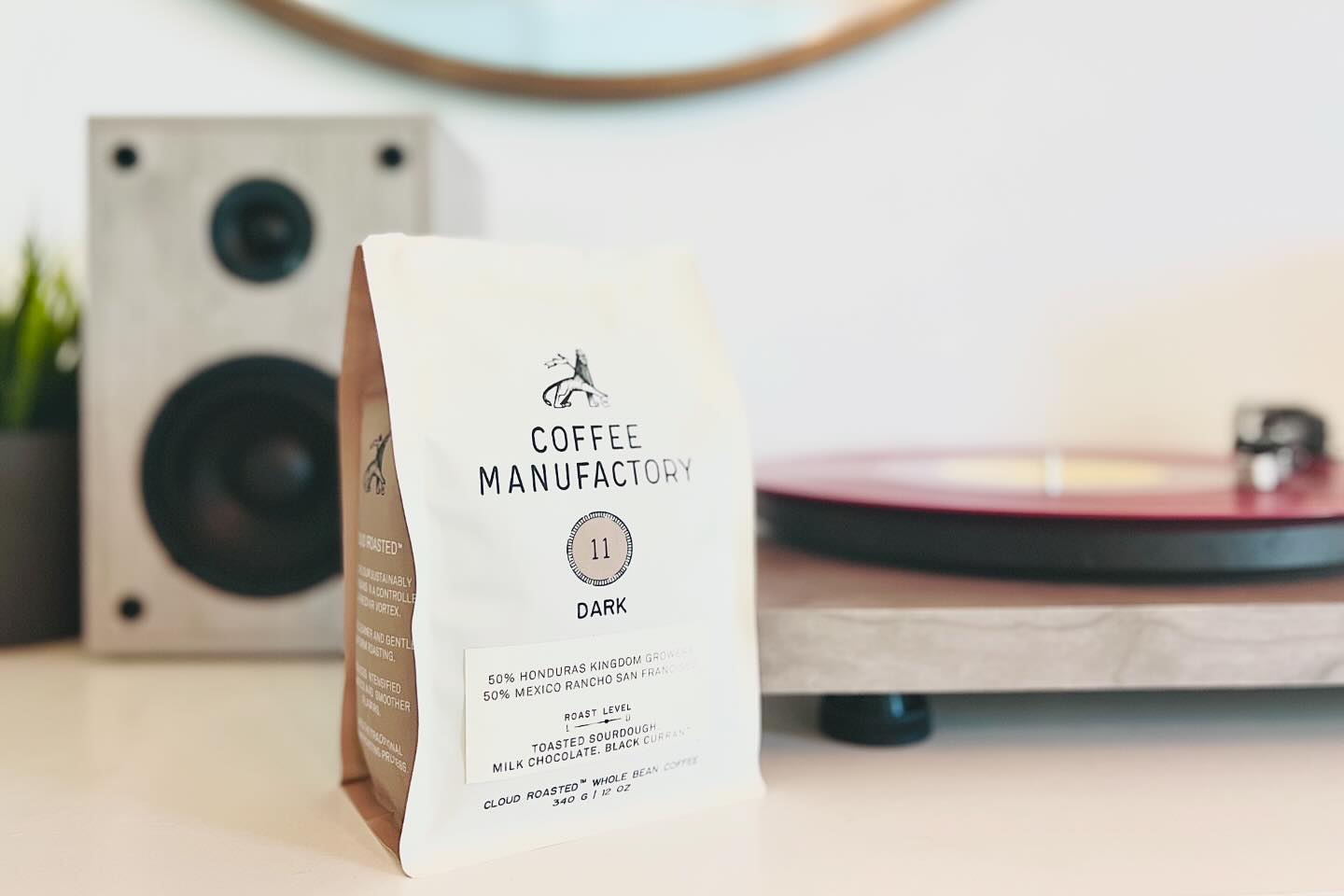Coffee Manufactory
11 DARK
11 DARK
Couldn't load pickup availability
50% HONDURAS KINGDOM GROWERS
50% MEXICO RANCHO SAN FRANCISCO
TOASTED SOURDOUGH . MILK CHOCOLATE . BLACK CURRANT
Origin: Mexico / Honduras
Region: Chiapas / Monticillo
Variety: Caturra, Bourbon
Process: Washed
Roast Level: Medium - Dark
Altitude Grown: 1,000 - 1,600 m
When we chose to source coffee specifically for a medium/dark roast profile, we did so with intention. We were impressed with the incredible consistency of this Mexican offering, as well as the complexity of the lots from Honduras. 11 DARK produces a well balanced, full-bodied cup with notes of toasted bread, milk chocolate & black currant.
Share


11 DARK
ORIGINS

HONDURAS KINGDOM GROWERS
Honduras Kingdom Growers farmers work
together with the goal of producing the
best coffee for everyone’s benefit.
Producers here have realized the need for
high grade, specialty coffee and we have
really loved the extra care that the Honduras Kingdom Growers have taken to ensure its quality. The farms generally range in size from 1 – 12 acres and are spread between elevations of 4,000 to 5,200 feet. The lots are handpicked and centrally processed to ensure ideal cup quality.

MEXICO RANCHO SAN FRANCISCO
The Guillen family’s Mexico Rancho San Francisco has become a highly beloved and highly sought after offering by coffee roasters. Overall this is one of the most versatile coffees around—it can be roasted across the spectrum, blended, or enjoyed as a solo cup or single origin espresso.
Chiapas is the southernmost region in Mexico, sharing a border with Guatemala to the west, and Oaxaca to the east. It is well suited to produce an almost “Guatemala-esque” profile; medium body, low acidity, nuttiness and a hint of spice.


